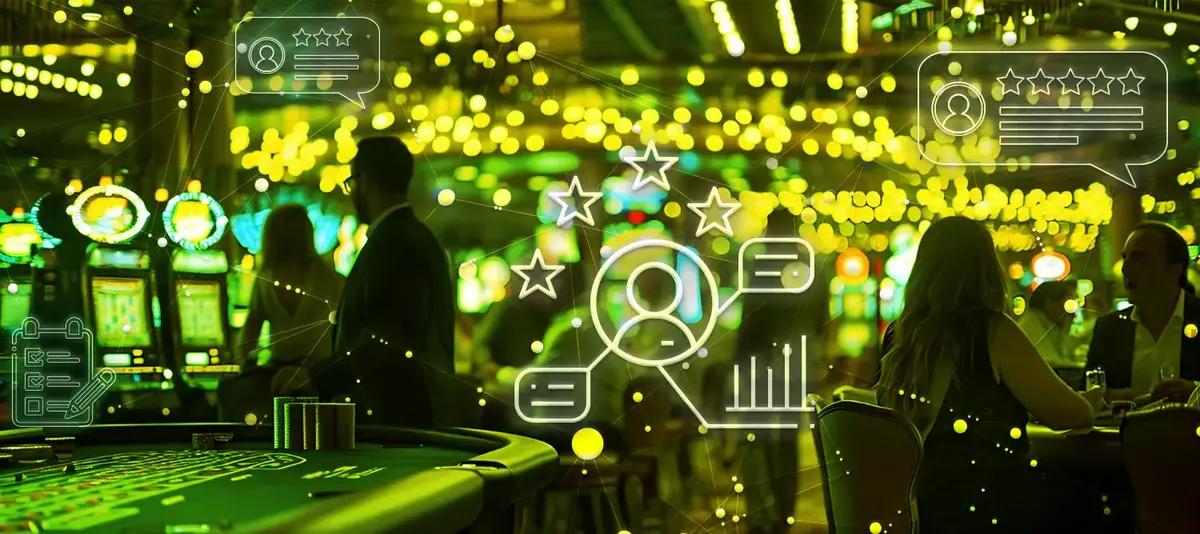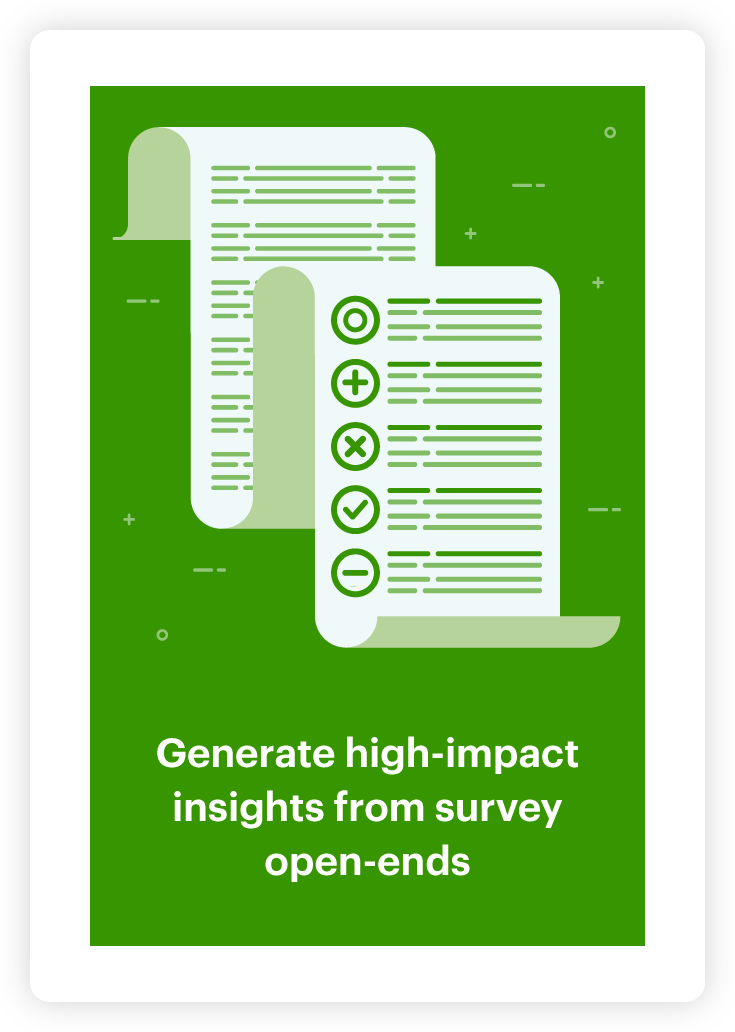Identifying and removing barriers to player experience at a casino hotel

Operating a casino hotel in Las Vegas is a lesson in competition. With endless other attractions to choose from, providing a player experience that attracts and keeps guests coming back for more is vital.
A LaneTerralever survey found that 32% of players were only willing to give casinos one chance to remedy a bad experience. This is amplified in Sin City, where players have a plethora of other options.
Beyond immediate physical rivals, casino hotels must also compete with online gambling sites. With an increasing number of states taking a less restrictive stance on gambling, online gaming has boomed, with the sector estimated to be worth $9.5bn and counting.
It’s against this backdrop that a resort in Las Vegas uses Relative Insight to track casino guest experience. One slip in its overall satisfaction rating (OSAT) could see players deserting the casino hotel in their droves.
This dreaded scenario played out towards the end of 2023. With its OSAT score falling, the resort prioritized its fortnightly analysis of post-attendance casino feedback survey. By using Relative Insight to analyze what was impacting player experience, it acted on the factors guests were raising as issues.
Here is what the business found, and how it acted on feedback from its casino guest experience survey.
Human interaction key to player experience
The company’s casino guest experience team had a hypothesis for the fall in overall satisfaction. The resort had introduced an app to streamline player experience and attract digitally native younger gamblers. Anecdotally, the team was aware that the release hadn’t gone as intended.
When analyzing casino feedback, it was unsurprising that players talked about the app infinitely more — meaning the word didn’t appear in the previous survey.
Gen Z respondents were particularly scathing about the app’s user experience, while older casino hotel guests complained that its ‘game recommendations’ and ‘game selection’ weren’t attuned to their needs.
“The app bombarded us with an endless stream of game recommendations, but none of them seemed to match our preferences or interests.“
However, the app’s introduction impacted guests in another way. In the previous survey, players referred to staff by name 12.1x more, as well as praising their ‘friendly demeanour’, ‘dedication’ and ‘expert’ knowledge infinitely more. Their praise focused on a dealer named ‘Mike’, who had moved to a different casino during this period.
“Shoutout to Mike for being an absolute pro at the tables! His expertise and charm make every round a delight.“
The introduction of the app, coupled with Mike’s departure, impacted how staff behaved with guests. Players used words relating to ‘disinterest’ 5.8x more, including ‘impersonal’ and ‘disengaged’. They also complained about ‘staff’s insistence’ that they used the app.
“I was surprised by the staff’s insistence on using the app for game recommendations. Whenever I asked for suggestions, they would direct me to the app, rather than offering their own insights or expertise.“
By analyzing open-ended responses, the casino hotel identified that staff had stopped engaging with players due to the resort’s new focus on making its app an integral part of its experience.
Acting on feedback to restore casino guest experience
Based on these responses, the casino hotel launched two initiatives to restore player experience. It undertook work to upgrade its app to provide a more tailored experience, but also asked staff to be less focused on directing people to the app and use their initiative when supporting guests.
The former is a work in progress. In the next round of casino survey feedback, players still talked about the ‘app’s complexities’ and complained that it wasn’t personalized enough.
“My experience with the casino’s app was less than stellar, as its confusing design and lack of user-friendly features made it difficult to use. Despite my attempts to use it for game recommendations and reward tracking, I quickly became frustrated with its complexity.“
However, the resort’s OSAT score had increased compared to last fortnight’s rating. Staff had reacted positively when directed to engage more with players. Two team members in particular received lavish praise from guests: Brett and Tanisha.
Croupier Brett brought renewed vigor to the casino floor, with survey respondents praising his ‘enthusiasm’ and ‘energy’, as well as his all-round ‘personality’.
“Brett’s energy and enthusiasm were infectious, and they truly elevated my experience.“
Players praised floor runner Tanisha’s ‘knowledge’ and ‘confidence’ in their casino survey feedback. They highlighted how she had set them up in the right games with the right players, not only making for a better player experience but also aiding them in their development.
“Tanisha’s skill in matching players to each other to enhance their development was truly remarkable.“
This analysis highlighted that, while improvements were still needed within the app, having fun, friendly and knowledgable employees more than made up for this issue.
A casino hotel maintains its competitiveness using text analysis
Following this program of analysis, the casino hotel had a continuing plan of action. While improving the app will be an ongoing process, ensuring staff interact with players and used their expertise, rather than relying on the app, is its tactic to maintain casino guest experience.
To incentivize staff and aid retention (avoiding another Mike-style drop off in player engagement), the company also plans to introduce a bonus scheme for all employees praised within casino survey feedback.
The team will specifically use Relative Insight to segment feedback from Gen Z players surrounding the app. With the app designed to attract this demographic, the resort decided to tailor its development to their wants and needs, rather than trying to create something that attempted to appeal to players in every age range.
Without Relative Insight to analyze its survey feedback, the casino’s guest experience team would have acted on its hypothesis and not understood the knock-on effects of the app’s introduction. Staff would still appear disengaged and players would have taken their business to friendlier destinations.
Do you understand what’s really driving you OSAT, CSAT or NPS scores? Or are you just acting on hypotheses? Try Relative Insight for free to see what your analysis isn’t identifying.
